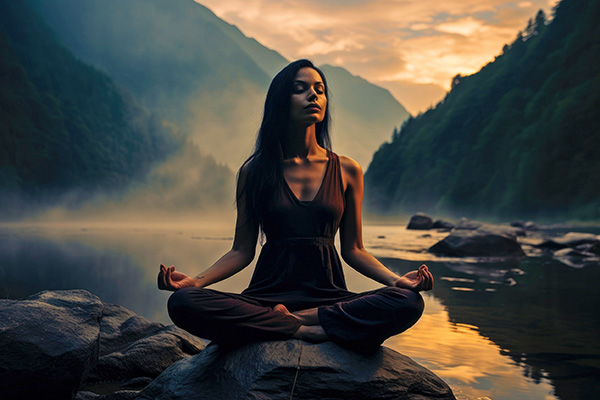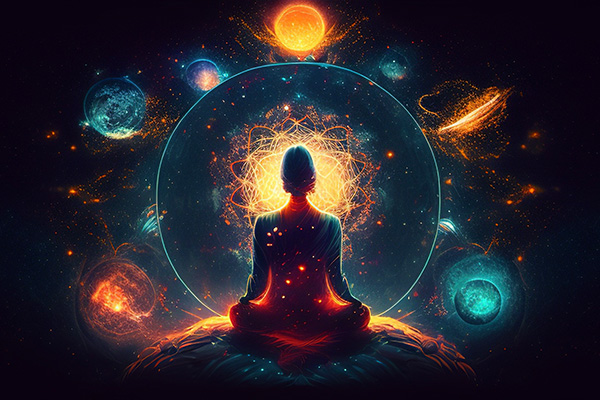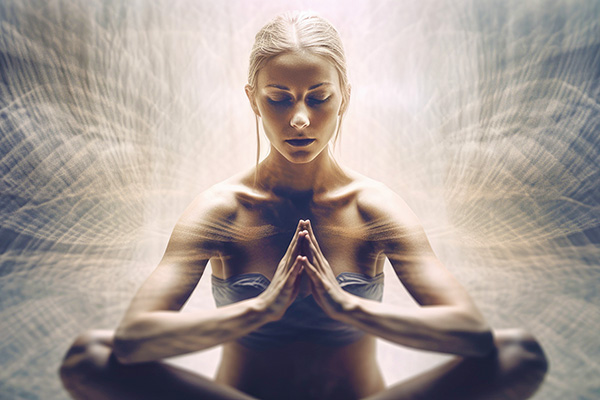martial arts
How To Navigate The Chaos Like A Champ
 The physical life adventure we signed up for before we were born has many twists and turns. From our careers and relationships to personal health and world events.
The physical life adventure we signed up for before we were born has many twists and turns. From our careers and relationships to personal health and world events.
While these ups and downs of life and love are exactly what we came here to experience for our personal enlightenment and soul evolution, they can sometimes throw us into moments of chaos, frustration, anxiety and even instense despair.
The key to not becoming disoriented or deflated in these difficult moments is to always remember why we are here in the first place, no matter how crazy things may get. Every time we face adversity or have to overcome setbacks and obstacles, we are making progress on our amazing soul journey.
Embracing the dynamic and sometimes very challenging nature of our existence is essential to fulfilling our spiritual mission. Staying balanced in an ever-changing environment is not just a possibility – it is an exciting opportunity for self-discovery and spiritual empowerment.
Change and uncertainty are inevitable. Developing a mindset of flexibility and adaptability can help you navigate the chaos with greater ease. Surrender to the knowledge that you can’t control everything, but you can control your thoughts, mindset and reactions.Amid chaos and despair, remember: every setback is a step forward in your amazing spiritual odyssey!
Three days ago, a deer collided with my car two hours from home. It did not survive and my vehicle is no longer drivable. The hardest thing for me was the grief of killing one of God’s beautiful creatures. Why did I not see it earlier and react sooner?
Replace Nighttime Overthinking With Morning Clarity
 As night falls and the world quiets down, our minds often do the opposite. Many of us find ourselves caught in a relentless tide of overthinking as we replay the past and stress about the future. This mental whirlwind of worry can leave us feeling mentally foggy and emotionally drained, far from our true selves.
As night falls and the world quiets down, our minds often do the opposite. Many of us find ourselves caught in a relentless tide of overthinking as we replay the past and stress about the future. This mental whirlwind of worry can leave us feeling mentally foggy and emotionally drained, far from our true selves.
But within all this turmoil lies a powerful opportunity for personal growth and empowerment. How is this possible? Well, the key to ending the constant spiral and realigning ourselves with our highest good lies in cultivating greater intuitive awareness and mental clarity.
Overthinking at night is a common problem for many of us. In the silence of the night, after being on autopilot all day, our overactive minds become a breeding ground for worry, fear, and regret. Over time, this leads to a vicious cycle of anxiety and insomnia, which leads to more stress the next day, which leads to more anxiety and insomnia the next night, and so on.
The results are not only that we feel constantly tired and energetically drained, but we also lose our sense of self and connection to our soul purpose. Feeling energetically drained and disconnected from our authentic selves, we begin to question our choices and direction in life, leading to increased anxiety and decreased self-esteem. It becomes a very toxic spiral that is devastating to our physical, mental, emotional and spiritual well-being!
Daily Practices That Give Me Inner Peace
 Finding moments of quiet and spiritual renewal is more important than ever in today’s world, where we are constantly bombarded with information.
Finding moments of quiet and spiritual renewal is more important than ever in today’s world, where we are constantly bombarded with information.
A spiritual self-care routine empowers us and increases our energy. It acts as an anchor, grounding us and providing stability and calm in the ebb and flow of life.
Over the years, I have developed certain daily practices that I find most effective for keeping me focused on my personal goals, to ensure my spiritual grounding and energetic well-being in the midst of daily challenges and sometimes chaos.
Morning Meditation
I like to start my day with a mindfulness meditation to establish a foundation of calm for the day ahead. It prevents a potential onslaught of stress and anxiety and replaces it with a peaceful heart and clear mind.
Spending a few moments each morning sitting in silence allows me to connect with my inner self and establish peace and intention. For me, this practice isn’t just about closing my eyes and sitting still; it’s an opportunity to observe my thoughts without judgment, to find clarity and calm, and to center my mind.
The Anchoring Vitality Of The Root Chakra
 The chakras play a pivotal role in our energetic well-being. These energy centers, rooted in ancient Eastern philosophies, govern various aspects of our physical, emotional, and spiritual functioning and health.
The chakras play a pivotal role in our energetic well-being. These energy centers, rooted in ancient Eastern philosophies, govern various aspects of our physical, emotional, and spiritual functioning and health.
At the very base of this intricate energy system lies the root chakra, an energetic foundation that holds the key to our sense of security, stability, and connection to the world around us.
The root chakra, also known as the base chakra or muladhara in Sanskrit, is the first of the seven main chakras at the base of the spine. Its significance cannot be overstated, as it is the energetic anchor for the entire chakra system. This energy center is associated with red, symbolizing vitality, strength, and the life force that flows through us.
At its core, the root chakra is linked to our most primal instincts and survival needs. Its activation is crucial for establishing a solid foundation for a balanced and fulfilling life. When the root chakra is in harmony, it fosters a sense of security, grounding, and a deep connection to the physical world.
One of the primary functions of the root chakra is to address our basic survival needs, including food, shelter, and a sense of safety. When this chakra is balanced, we feel secure in our environment, enabling us to navigate life with confidence and stability. On the contrary, an imbalanced root chakra may manifest as fear, anxiety, or a constant sense of insecurity.
The Forgotten Art Of Self-Healing
 Self-healing is a holistic approach to wellness that too often takes a back seat in our modern existence.
Self-healing is a holistic approach to wellness that too often takes a back seat in our modern existence.
The mind-body has an incredible restorative and self-healing capacity that is often overlooked. Harnessing these inner forces can lead to a profound transformation of one’s life.
Self-healing is not just about recovering from physical ailments; it encompasses mental, emotional, and spiritual well-being.
It is the process of harnessing our body’s innate ability to recover from physical ailments and mental health challenges without relying solely on external intervention.
It’s about nurturing your body’s natural ability to rejuvenate, repair and thrive.
To achieve self-healing, it’s critical to recognize the mind-body connection. Our thoughts and emotions have a profound effect on our physical well-being. Negative thoughts and feelings such as stress, worry, anxiety, fear and resentment can all manifest as physical symptoms. Self-healing addresses these underlying emotional and mental issues to begin the healing process.

